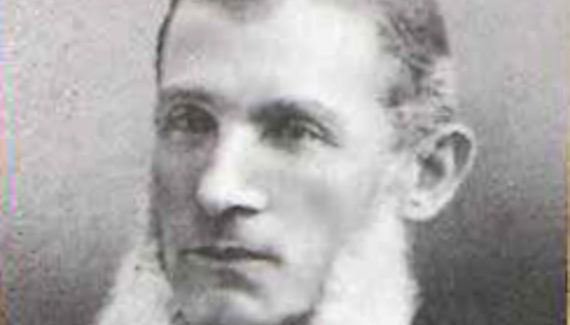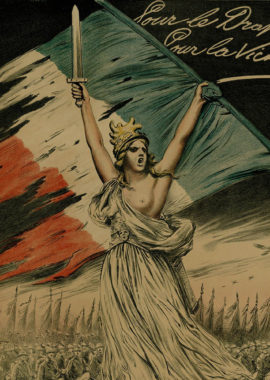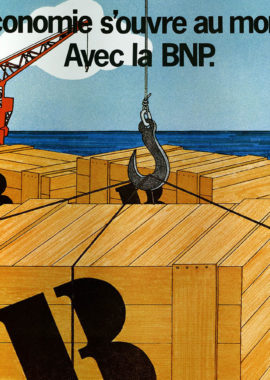Eugène Raval turned the Comptoir d’Escompte de Mulhouse into one of the foremost financial institutions in France, before launching Banque Nationale de Crédit.
25 years at the helm of CEM
Eugène Raval was born in Saint-Dié in the Vosges region of France in 1852. It is likely that he began his working life at the Banque de Mulhouse before taking over as General Manager of the Comptoir d’Escompte de Mulhouse (CEM) in 1887. Driven by what a newspaper report of the time referred to as his “unrelenting labour, his excellent decision-making and his consummate business expertise”, CEM set out on an audacious campaign to conquer the “French heartland”. The article pays further tribute to his “energy, his boldness, and (…) his prudent management”. In 1912, on his twenty-fifth anniversary at the head of CEM, the man who was running a bank that had been founded inside the German Empire was appointed a Chevalier of the French Légion d’honneur. He was further honoured with the decoration of Officier of the Légion d’honneur in 1920. Gustave Favre and Léon Dardel, who supported his nomination, pointed out that the Alsatian bank was working to meet “the ever-growing needs of trade and industry, which are being neglected by the major financial institutions”.
The beginnings of Banque Nationale de Crédit
In 1913 the Banque Nationale de Crédit (BNC) took over the business of the French branch network of CEM, its former parent. Eugène Raval was appointed Managing Director, then Chairman, of the new bank. He embarked on the same aggressive business expansion policy he had begun on the banks of the Rhine. In 1922, following the merger of the BNC with the French Bank for Trade and Industry (BFCI), he stepped down from the chairmanship and resigned his seat on the Board of Directors one year later, a departure which would have serious consequences for BNC.
The man with an all-conquering vision of banking who had created a unique, pioneering banking culture whose spirit was then infused into BNC and later taken up by Banque Nationale pour le Commerce et l’Industrie (BNCI), died in Paris in 1941.
To go further :
Nicolas Stoskopf, « Une réussite méconnue : le Comptoir d’escompte de Mulhouse (1848-1930) », Annuaire historique de Mulhouse, t. 27, 2016, p. 191-206.











